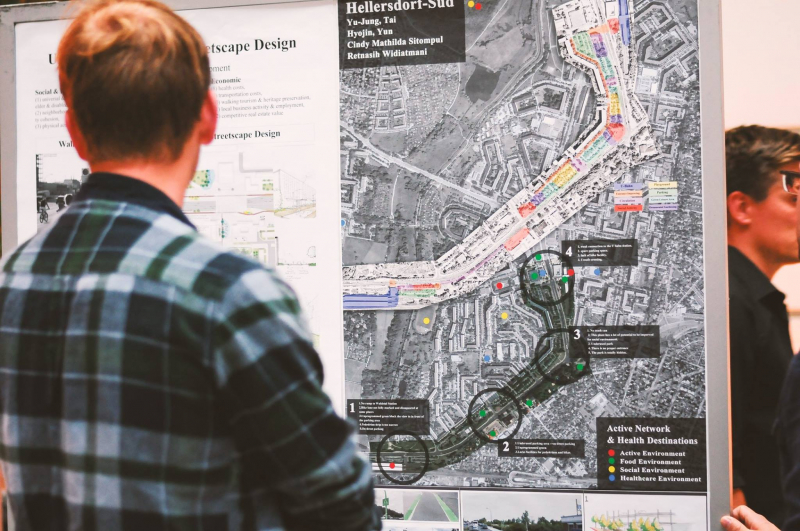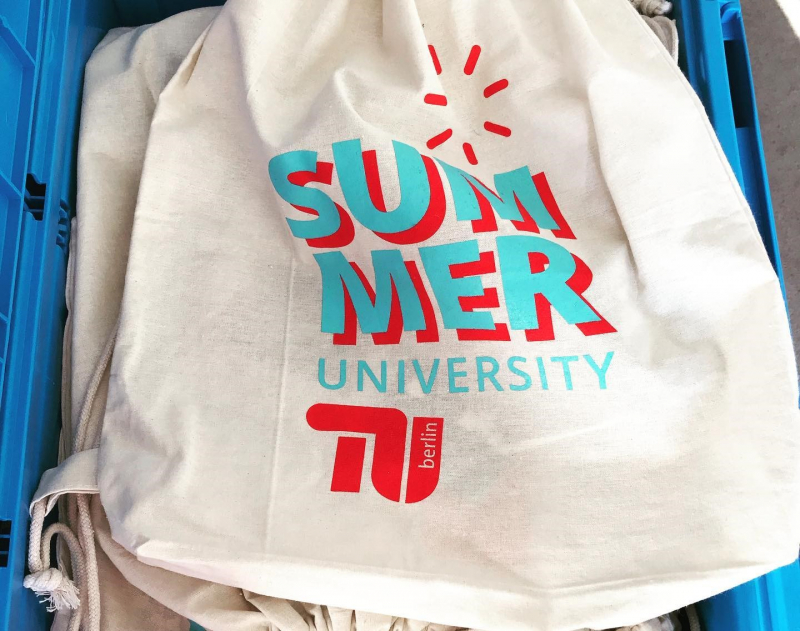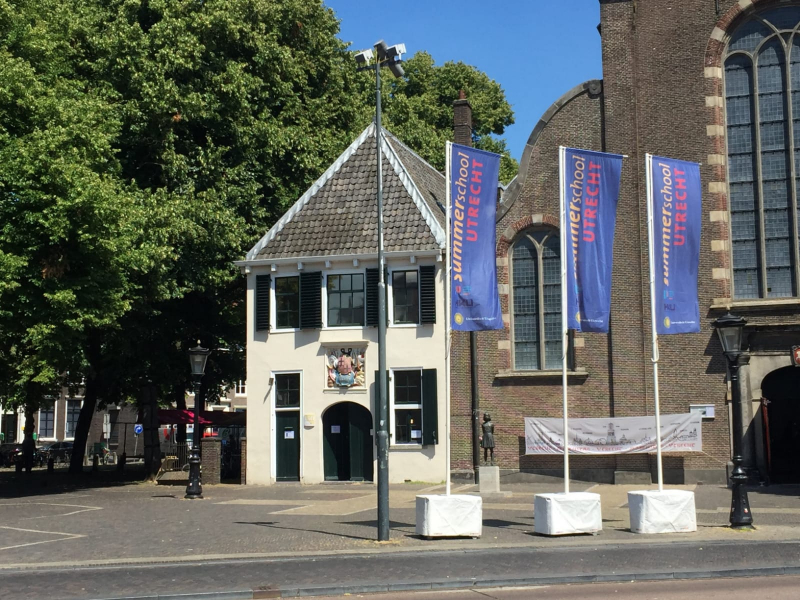The summer is in full swing, and those who want to spend it to the benefit of their career still have the chance to enroll in one of numerous summer schools by the world’s leading universities. This year, you won’t even need to worry about student visas and airplane tickets – the knowledge is all online for the taking.
What’s more, any tuition-free ITMO University student can apply for the competition to have their participation in a short-term educational event partially funded. If your application is approved, you can have up to 70% of the course’s fee reimbursed.
TU Berlin Summer University Online (Berlin Institute of Technology, Germany)

This year, TU Berlin had to cancel practically all of their summer courses, but several educational programs are still available online, their topics ranging from urban science to big data analysis and machine learning.
When: August 17-28, 2020, plus an additional week to prepare
Deadline: August 7, 2020
Fee: 700 euros
Requirements: English level of B2 and above
Register here
-
ICT and Transportation in Smart Cities
Requirements: knowledge of the fundamentals of mathematics and statistics
This two-week program will provide students with a general overview of sustainable and smart transportation systems and their role in the future smart city infrastructure based on industry trends and cases from modern urban design. Participants will learn to analyze transport systems, identify global trends in the development of cities, forecast traffic congestion, and model possible solutions to this problem.
Learn more here
-
Circular Economy: Introduction and Urban Prototyping
This course serves as an introduction into the topic of circular economy in terms of urban resource flows such as water, energy, materials, food, and waste. The program includes lectures on the theory behind this economic model, as well as workshops on the analysis of real-world cases and development of city infrastructure prototypes that meet the demands set by today’s global challenges.
Learn more here

-
Innovation and Entrepreneurship
Participants will familiarize themselves with the European approach to entrepreneurship through the prism of dynamically developing Berlin startups and innovation ecosystems. The course helps acquire practical skills on the development of new products or services – from an idea to a fully fledged business concept – and will culminate in team projects defense.
Learn more here
-
System Dynamics Modelling for Business Analysis
This course covers the theory and tools of the systems approach to business processes. Participants will learn to build and apply dynamic computer models and simulations (using the Vensim PLE software), analyze business strategies, and forecast the development of complex business systems.
Learn more here

-
Introduction to Python for Data Analysis
This is an introductory course to the Python language for those who are just starting out in or have no knowledge of programming. The program consists of two parts: foundations of programming in Python and using Python for data analysis. Note that the course doesn't cover the topic of machine learning.
Learn more here
-
Data Science with Python
Requirements: basic programming knowledge (any language), basic knowledge of linear algebra, statistics and probability theory
The course aims to help you master the basics of Python and how to apply it for working with big data. Participants will learn to make use of popular libraries such as NumPy and Matplotlib, process large amounts of data, and present it in the form of simple visualizations.
Learn more here
Utrecht Summer School (Utrecht University and HU University of Applied Sciences Utrecht, the Netherlands)

This joint summer school by Utrecht University and HU University of Applied Sciences Utrecht offers a variety of online courses on economics, management, data analytics, machine learning and urban science. Several free lectures are also available, but note that you have to be registered to attend.
The full list of the courses on offer is available here.
Make sure you register in advance here to participate in any of the courses.
-
Free webinar “Machine Learning in Practice”
When: July 17, 2020
Deadline: July 10, 2020
This free webinar will introduce you to how machine learning works and how to train algorithms, as well as discuss the applications and ethical aspects of this tool. No prior programming knowledge is required.
Learn more here
-
Free webinar “Introduction into the Concept of Smart Sustainable Cities”
When: August 21, 2020
Deadline: August 13, 2020
Organized by experts at HU University of Applied Sciences Utrecht’s Centre of Expertise Smart Sustainable Cities, this webinar focuses on the development of urban infrastructure in accordance with the concept of sustainable development.
Learn more here

-
Project Management: From Theory to Practice
When: August 3-14, 2020
Deadline: July 15, 2020
Fee: 1,070 euros
Participants will familiarize themselves with modern approaches to managing projects and multidisciplinary teams. The lectures will walk you through the main stages of a product’s lifecycle, planning and building a project strategy, allocating roles in a team, and group dynamics.
Learn more here
-
Exploring Culture Through Data: Digital Methods & Data Practices
When: August 17-21, 2020
Deadline: July 31, 2020
Fee: 250 euros
Requirements: a motivation letter and a CV
This crash course is organized by the Utrecht Data School, a part of Utrecht University’s Faculty of Humanities. Participants will be instructed in the main methodology used in digital culture research, from mining and processing data to its visualization. The course involves team project work and use of the Python programming language.
Learn more here

-
Introduction to Econometrics using Stata
When: August 17-28, 2020
Deadline: August 15, 2020
Fee: 125 euros
This two-week course on applied work in the statistical software package Stata is intended for those who want to master the basics of statistics and regression analyses. The target audience are prospective students wishing to apply to Master’s programs in economics, banking, and financial management.
Learn more here
The University of A Coruña’s International Summer School (The University of A Coruña, Spain)

The University of A Coruña’s summer school combines online programs by its partner universities from all over the world, including the University of Cambridge, Johannes Kepler University Linz, Lublin University of Technology, and many others.
When: July 20-31, 2020
Deadline: July 13, 2020
Fee: 400 euros
To participate in any of these courses, you have to register in advance here and complete the application form
Artificial Intelligence in Business Management
Organized by the University of the West Indies (Jamaica), the course provides an introduction into the notion of artificial intelligence, explains its links to machine learning technologies, blockchain and robotics, and discusses its applications in business, industry and other fields, as well as the future of the labor market should artificial intelligence be widely introduced into the production of goods and services.
To prepare for the course, you can use the learning materials provided by the lecturer.
Learn more here

Deep Learning
Delivered by the Ivane Javakhishvili Tbilisi State University, the course covers the application of deep machine learning technologies in a range of complex tasks such as speech recognition, natural language processing and image segmentation.
Learn more here
Basics of Experimental Statistics with Python
In this course by Cracow University of Technology, students will be introduced to theoretical foundations of data science as well as the main concepts of statistical analysis such as random variables, distribution functions, and numeric characteristics, and learn to work with Python and popular libraries such as pandas, NumPy, and Matplotlib.
Learn more here
Intelligent Transportation and Smart Cities
Offered by the Mediterranea University of Reggio Calabria, this course focuses on how smarter infrastructures, self-monitored environmental systems, and self-driving and electric cars will make the world more sustainable, eco-friendly, and secure.
Learn more here

Material Science
This course consists of two modules. The first is delivered by the University of Cambridge and focuses on studying the behavior of atoms and molecules at the surfaces of functional materials, nanomaterials and graphene-like structures, as well as their applications in various devices. The second module is organized by Johannes Kepler University Linz and fully revolves around plastics: their molecular make-up, functional properties, production technology, fields of use, regulation, recycling methods and other topics.
Learn more here
Numerical Analysis of Physical Processes
Requirements: basic knowledge of high school math and physics, intermediate (or higher) level of Technical English
Delivered by Lublin University of Technology, Poland, this course is intended for engineering majors. Its main goal is to teach students to use math, logic and computing methods to solve engineering tasks, covering such software as MatLab, SciLab, and FEMM, which are used to solve physical and statistical problems.
Learn more here

Enzymatic Engineering and Biotechnology
Provided by the University of Sfax, Tunisia, this is an intensive course on enzymology and enzymatic engineering, delving into how enzymes are studied, synthesized, and applied in medicine, pharmacology, biotechnologies, food industry and other fields.
Learn more here
SHARIF Online Summer School (Sharif University of Technology, Iran)
The online school presents a variety of courses on biomechanics, nanotechnologies, materials science, chemical technologies, spacecraft design, economics and management. You can choose to study up to three courses or opt for one of five recommended course packages.
When: July 27 – August 15, 2020
Deadline: July 15, 2020
Fee: 50 euros for a course without a certificate, 150-200 euros for a course with a certificate
Full list of courses with registration links is available here

Cebex Summer School on Behavioral Sciences (Center for Behavioral Experiments, Czech Republic)
The school offers courses in behavioral economics by experts from London School of Economics, University of San Francisco, Max Planck Institute for Human Development, University of North Carolina, and other leading universities. Both short introductory courses and intensive courses for those with previous knowledge of a topic are available.
When: July 20-22, 2020 – introductory courses, July 27-30, 2020 – main courses
Deadline: July 13, 2020 for introductory courses, July 20, 2020 for main courses
Fee: 290 euros per introductory course, 390 euro per main course, 490 for both.
Full list of courses with registration links is available here





